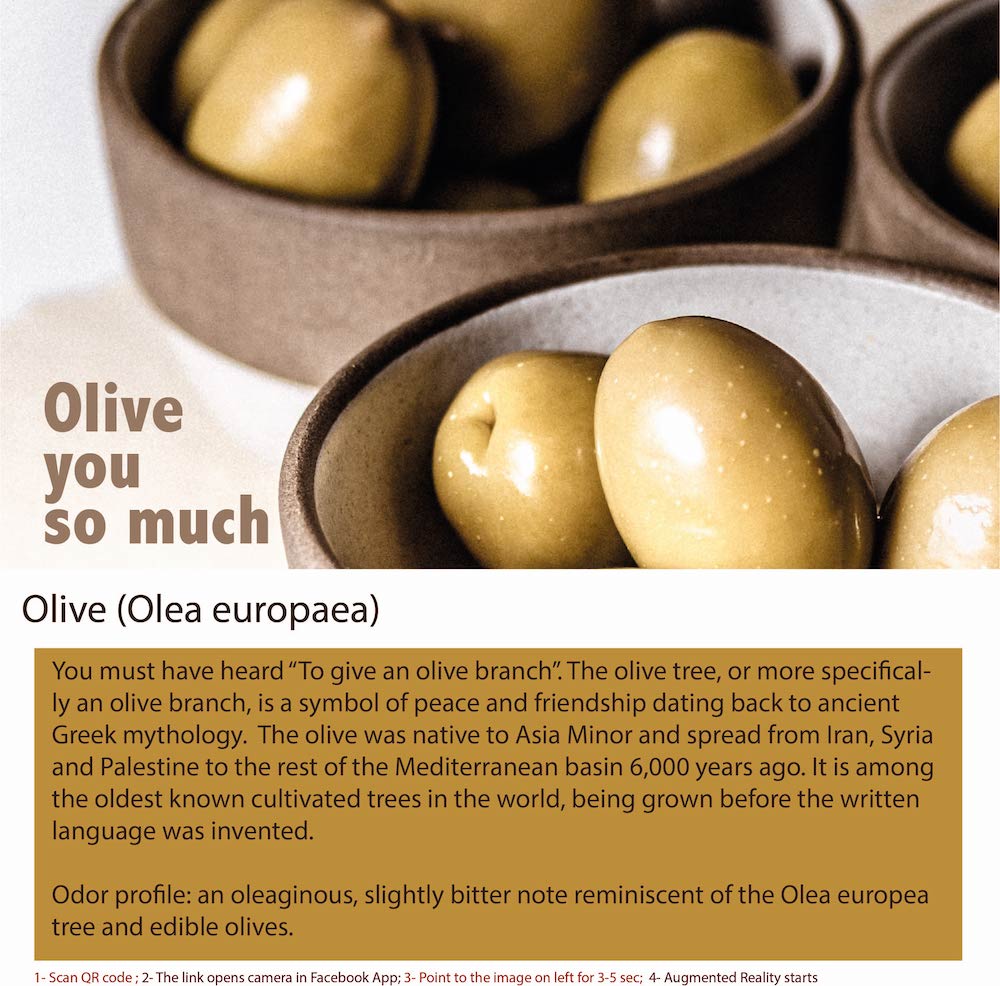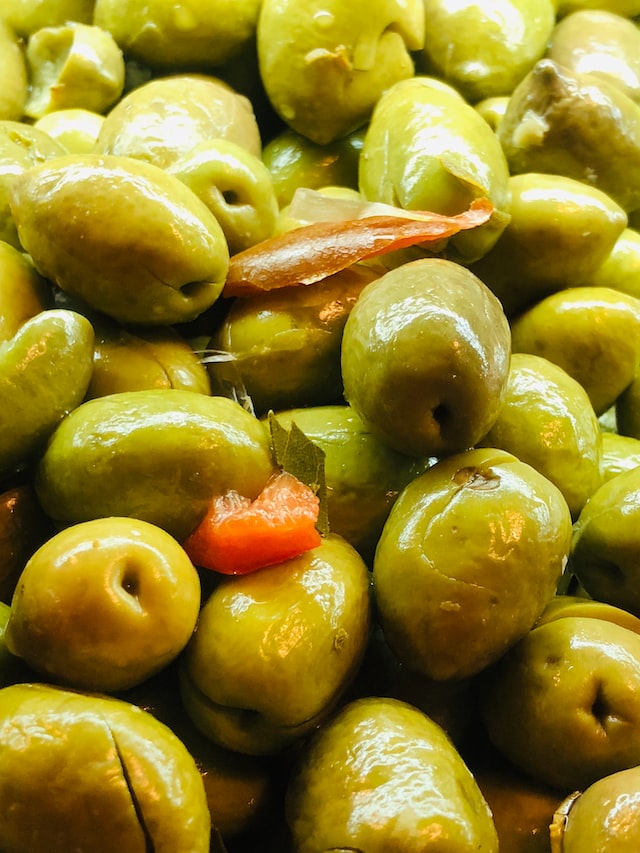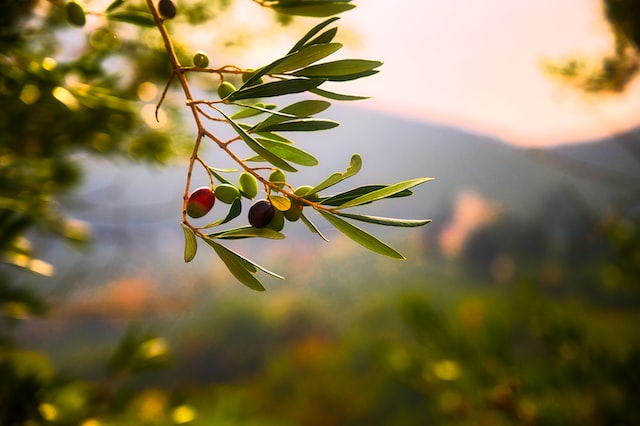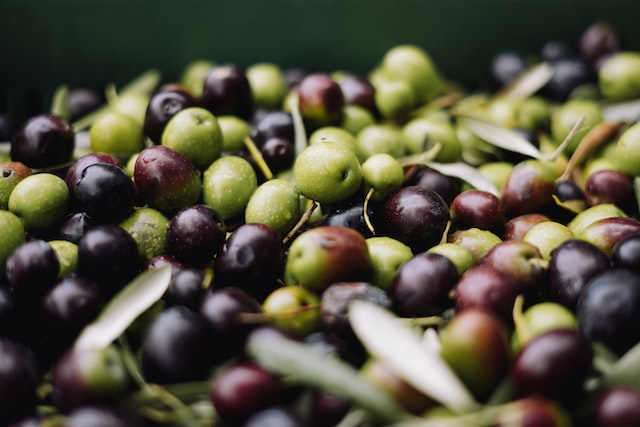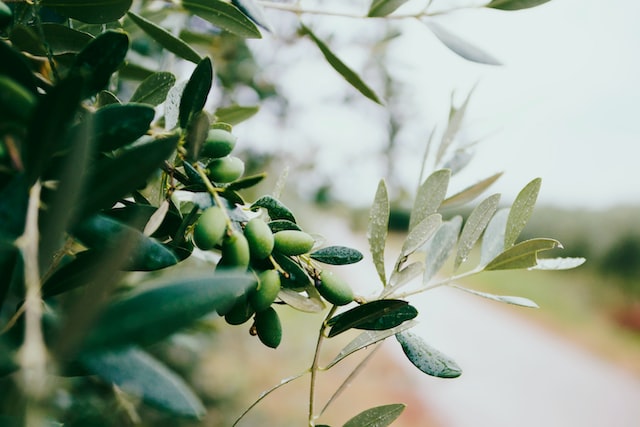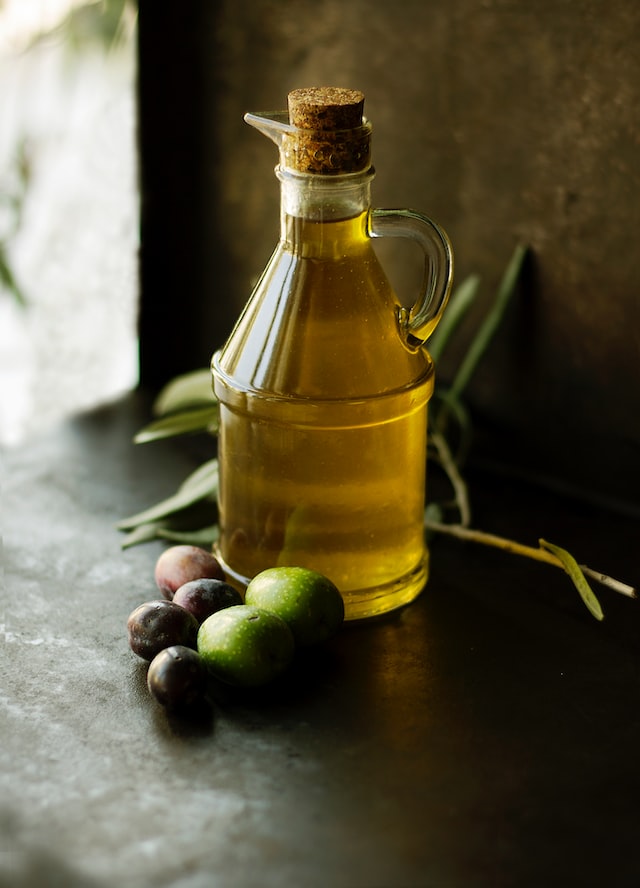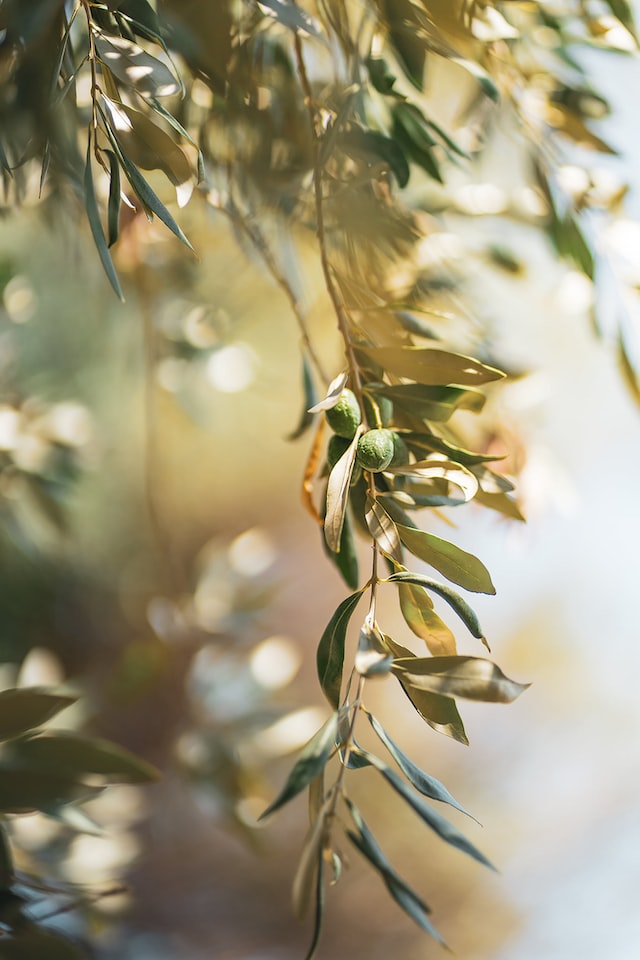Unlocking Nature's Treasures: The Power of Fruity Mediterranean Olive
Olive: The Timeless and Nutritious Treasure
Introduction: The olive, with its timeless and nutritious characteristics, is a cherished fruit that has been revered by civilizations for thousands of years. From providing olive oil for various uses, including perfumes and therapeutic oils, to being a staple in Mediterranean cuisine and offering potential health benefits, olives are a versatile and treasured treasure. This essay delves into the captivating world of olives, encompassing their presence in perfumes, therapeutic oils, food, medicinal systems, historical significance, and intriguing fun facts about this delightful and beneficial fruit.
Historical Significance and Culinary Heritage: Olives have a rich history dating back to ancient times, originating in the Mediterranean region. The olive tree (Olea europaea) holds significant symbolic and cultural value in various civilizations, including those of ancient Greece, Rome, and Egypt. The olive branch has historically been associated with peace and prosperity. Olives and olive oil have been essential staples in Mediterranean cuisine for centuries, providing a source of healthy fats and flavor enhancement in various dishes.
Perfumes and Fragrance: While olive essential oil is not commonly used in perfumery, olive leaves and olive oil are occasionally used to extract aromatic compounds. Olive leaf extracts and olive oil-infused perfumes may carry the delicate and green aroma of olives. The fragrance is often fresh, light, and reminiscent of the Mediterranean landscape, offering a natural and breezy allure.
Therapeutic Oils and Aromatherapy: Olive essential oil is not commonly used in aromatherapy. However, certain olive oil blends infused with herbs or other aromatic plants are used in massage and relaxation practices. Olive oil is valued for its nourishing and moisturizing properties, making it a popular base oil for aromatherapy blends and skincare formulations.
Culinary Delights: Olives are a beloved ingredient in Mediterranean cuisine, known for their diverse flavors and versatility. They are enjoyed in various forms, such as green or black, and are used in salads, pastas, pizzas, tapenades, and more. Olive oil, often referred to as "liquid gold," is a staple in cooking, dressing, and drizzling on various dishes, enhancing flavors and providing healthful monounsaturated fats.
Medicinal and Nutritional Benefits: Olives and olive oil are packed with health-promoting nutrients, including monounsaturated fats, antioxidants, vitamins (such as vitamin E), and minerals (such as iron and calcium). The health benefits of olives and olive oil are linked to improved heart health, reduced inflammation, and support for the immune system. Olive leaf extracts have also been used traditionally for their potential medicinal properties, including antioxidant and anti-inflammatory effects.
Fun and Crazy Facts:
The olive, with its timeless significance and nutritious nature, stands as a symbol of peace, prosperity, and culinary delight. From its use in perfumes and therapeutic oils to its presence in Mediterranean cuisine and potential health benefits, olives have left an indelible mark on the history and culture of various civilizations. As we savor the delightful flavors of olives and the nourishment they provide, we are reminded of the ancient wisdom and culinary heritage preserved in this versatile and cherished fruit.
Introduction: The olive, with its timeless and nutritious characteristics, is a cherished fruit that has been revered by civilizations for thousands of years. From providing olive oil for various uses, including perfumes and therapeutic oils, to being a staple in Mediterranean cuisine and offering potential health benefits, olives are a versatile and treasured treasure. This essay delves into the captivating world of olives, encompassing their presence in perfumes, therapeutic oils, food, medicinal systems, historical significance, and intriguing fun facts about this delightful and beneficial fruit.
Historical Significance and Culinary Heritage: Olives have a rich history dating back to ancient times, originating in the Mediterranean region. The olive tree (Olea europaea) holds significant symbolic and cultural value in various civilizations, including those of ancient Greece, Rome, and Egypt. The olive branch has historically been associated with peace and prosperity. Olives and olive oil have been essential staples in Mediterranean cuisine for centuries, providing a source of healthy fats and flavor enhancement in various dishes.
Perfumes and Fragrance: While olive essential oil is not commonly used in perfumery, olive leaves and olive oil are occasionally used to extract aromatic compounds. Olive leaf extracts and olive oil-infused perfumes may carry the delicate and green aroma of olives. The fragrance is often fresh, light, and reminiscent of the Mediterranean landscape, offering a natural and breezy allure.
Therapeutic Oils and Aromatherapy: Olive essential oil is not commonly used in aromatherapy. However, certain olive oil blends infused with herbs or other aromatic plants are used in massage and relaxation practices. Olive oil is valued for its nourishing and moisturizing properties, making it a popular base oil for aromatherapy blends and skincare formulations.
Culinary Delights: Olives are a beloved ingredient in Mediterranean cuisine, known for their diverse flavors and versatility. They are enjoyed in various forms, such as green or black, and are used in salads, pastas, pizzas, tapenades, and more. Olive oil, often referred to as "liquid gold," is a staple in cooking, dressing, and drizzling on various dishes, enhancing flavors and providing healthful monounsaturated fats.
Medicinal and Nutritional Benefits: Olives and olive oil are packed with health-promoting nutrients, including monounsaturated fats, antioxidants, vitamins (such as vitamin E), and minerals (such as iron and calcium). The health benefits of olives and olive oil are linked to improved heart health, reduced inflammation, and support for the immune system. Olive leaf extracts have also been used traditionally for their potential medicinal properties, including antioxidant and anti-inflammatory effects.
Fun and Crazy Facts:
- Olive Trees' Longevity: Olive trees are known for their exceptional longevity and can live for centuries, with some trees estimated to be over 2,000 years old.
- Symbol of Peace: The olive branch has been a universal symbol of peace and reconciliation since ancient times. It is often depicted in art, literature, and political contexts.
- Oldest Olive Oil Production: The oldest known olive oil production facility dates back over 6,000 years and was discovered in modern-day Israel.
- Oldest Olive Trees: Some ancient olive trees are said to be descendants of trees from biblical times, and their age is estimated to be several thousand years.
- Olive Oil as Lamp Fuel: In ancient times, olive oil was used as a lamp fuel, providing light in homes and public spaces.
The olive, with its timeless significance and nutritious nature, stands as a symbol of peace, prosperity, and culinary delight. From its use in perfumes and therapeutic oils to its presence in Mediterranean cuisine and potential health benefits, olives have left an indelible mark on the history and culture of various civilizations. As we savor the delightful flavors of olives and the nourishment they provide, we are reminded of the ancient wisdom and culinary heritage preserved in this versatile and cherished fruit.
To experience augmented reality, please open the Facebook-app using QR code and point to the image below
Embrace Wellness with Our Nutrient-Rich Olive Collection
The olive is a species of small tree in the family Oleaceae, native to coastal areas of the eastern Mediterranean basin as well as northern Iran at the south of the Caspian Sea. The fruit of the olive tree is known as an olive, which is a small drupe (a type of fruit with a hard pit or stone in the center) that can be eaten fresh or used to make olive oil. Olives are typically green when unripe and turn black when ripe.
Olive oil is one of the most important and widely-used culinary oils in the world, and it is also used in cosmetics, soaps, and as a fuel for lamps. Olives and olive oil have been a staple food in Mediterranean cuisine for thousands of years and continue to be an important part of the diet in that region today. In addition to their use as a food and oil source, olive trees are also prized for their ornamental value and are often used in landscaping and gardening.
Olive cultivation involves the growing of olive trees and the harvesting of olives for the production of olive oil, table olives, and other products. The process of cultivating olives involves a number of steps, including selecting the right variety of tree, preparing the soil, planting the trees, caring for the trees, and harvesting the olives.
Olive oil is one of the most important and widely-used culinary oils in the world, and it is also used in cosmetics, soaps, and as a fuel for lamps. Olives and olive oil have been a staple food in Mediterranean cuisine for thousands of years and continue to be an important part of the diet in that region today. In addition to their use as a food and oil source, olive trees are also prized for their ornamental value and are often used in landscaping and gardening.
Olive cultivation involves the growing of olive trees and the harvesting of olives for the production of olive oil, table olives, and other products. The process of cultivating olives involves a number of steps, including selecting the right variety of tree, preparing the soil, planting the trees, caring for the trees, and harvesting the olives.
- Variety Selection: Different varieties of olive trees have different characteristics, including size, fruit yield, oil content, and resistance to disease. Growers must select the variety that is best suited to their growing conditions and desired end use of the olives.
- Soil Preparation: Olive trees require well-drained soil with a pH between 6.5 and 7.5. The soil should be tilled and fertilized before planting to ensure that the trees have the necessary nutrients for growth.
- Planting: Olive trees are typically planted in the fall or spring. They are usually spaced 8 to 10 feet apart, and the soil around the tree should be kept moist until the tree is established.
- Care: Olive trees require regular pruning to control their size and shape, as well as to promote fruit production. They also need irrigation during dry periods and protection from pests and diseases.
- Harvesting: The olives are typically harvested in the fall or winter, when they are fully ripe. Olives used for oil production are picked when they are still green and unripe, while olives used for table olives are picked when they are fully ripe and black. The olives are then washed, sorted, and processed to produce oil or table olives.
- Olive oil production: The olives are first washed and then crushed to extract the oil. The oil is then separated from the solids through a process called decanting. The oil is then filtered to remove any remaining solids, and the final product is ready for bottling.
From Orchard to Bottle: The Journey of Fruity Mediterranean Healthy Olive
The olive tree has a long history dating back to ancient times. It is believed to have originated in the Mediterranean region and has been cultivated for thousands of years. The ancient Egyptians, Phoenicians, Greeks, and Romans all valued the olive tree for its fruit and oil.
In ancient Greece, the olive tree was considered sacred to Athena, the goddess of wisdom and warfare, and the city of Athens held an annual festival in her honor, which included the planting of olive trees. The ancient Greeks also believed that olive oil had medicinal properties and used it to treat a variety of ailments.
In ancient Rome, the olive tree was also considered sacred, and the oil was used in religious ceremonies, as well as in cooking and as a fuel for lamps. The Roman Empire later spread the cultivation of the olive tree throughout the Mediterranean region and beyond, making it an important crop in many parts of Europe, Africa, and Asia.
During the Middle Ages, olive oil production was mainly confined to monasteries, and it was a luxury item that only the wealthy could afford. But, during the 19th century, the olive tree became more widespread, and olive oil became more accessible to the general population.
Today, the olive tree is still an important crop in the Mediterranean region and is also grown in many other parts of the world, including the Americas, Australia, and South Africa. The olive tree and its oil continue to play a significant role in the culture, cuisine, and economy of the Mediterranean region.
In ancient Greece, the olive tree was considered sacred to Athena, the goddess of wisdom and warfare, and the city of Athens held an annual festival in her honor, which included the planting of olive trees. The ancient Greeks also believed that olive oil had medicinal properties and used it to treat a variety of ailments.
In ancient Rome, the olive tree was also considered sacred, and the oil was used in religious ceremonies, as well as in cooking and as a fuel for lamps. The Roman Empire later spread the cultivation of the olive tree throughout the Mediterranean region and beyond, making it an important crop in many parts of Europe, Africa, and Asia.
During the Middle Ages, olive oil production was mainly confined to monasteries, and it was a luxury item that only the wealthy could afford. But, during the 19th century, the olive tree became more widespread, and olive oil became more accessible to the general population.
Today, the olive tree is still an important crop in the Mediterranean region and is also grown in many other parts of the world, including the Americas, Australia, and South Africa. The olive tree and its oil continue to play a significant role in the culture, cuisine, and economy of the Mediterranean region.
Discover the Richness of Olive Extracts in Skincare
The olive tree and its fruit have played a significant role in the art, culture, and mythology of the Mediterranean region for thousands of years. Here are a few examples:
- In ancient Greece, the olive tree was considered sacred to Athena, the goddess of wisdom and warfare. The city of Athens held an annual festival in her honor, which included the planting of olive trees. The olive tree was also featured in many works of ancient Greek art and was often used as a symbol of peace and victory.
- In ancient Rome, the olive tree was also considered sacred and its oil was used in religious ceremonies. Roman art often depicted olive trees and olives as symbols of abundance and prosperity.
- In the Bible, the olive tree is mentioned several times and is often used as a symbol of God's promise of peace and salvation. The olive branch is also a symbol of peace and is often depicted in art and literature.
- Olive oil has also played an important role in Mediterranean cuisine and is an essential ingredient in many traditional dishes. Olive oil is also used in the production of soap, cosmetics and traditional medicines.
- In modern times, the olive tree and its fruit continue to be an important symbol in the art, culture, and economy of the Mediterranean region. They are often featured in paintings, sculptures, and other works of art, and they continue to be an important part of the region's cuisine and way of life.
Exploring the Benefits of Nutrient-Packed Olive Oil
Olive oil is a popular ingredient in cosmetics, particularly in skin and hair care products. It has been used for centuries for its moisturizing, nourishing, and protective properties.
- Moisturizing: Olive oil is rich in fatty acids and antioxidants, which help to hydrate and nourish the skin, leaving it feeling soft and smooth.
- Anti-aging: The antioxidants in olive oil can help to protect the skin from damage caused by free radicals, which can contribute to the aging process.
- Sun protection: Olive oil has natural sunscreen properties, which can help to protect the skin from the sun's harmful UV rays.
- Hair care: Olive oil is often used as a hair conditioner, as it can help to nourish and strengthen the hair, preventing breakage and split ends.
- Healing: Olive oil has natural anti-inflammatory properties, which can help to soothe and heal irritated skin, eczema, and other skin conditions.
Scentopia's Commitment to Natural Olive-Based Wellness
The scent of olives can be described as earthy, green, and slightly bitter. The aroma is often described as being similar to that of freshly cut grass, with a hint of fruitiness. Some people might detect a slightly nutty or woody aroma as well. The scent of olives is often associated with Mediterranean cuisine and the Mediterranean landscape.
When it comes to olive oil, the scent can vary depending on the variety of olives used, the ripeness of the olives at the time of harvesting, and the method of extraction.Extra virgin olive oil can have a fruity, green, slightly bitter and sometimes pungent smell.
Ripe olives have a more fruity and floral aroma, while unripe olives have a more grassy and vegetal aroma. Cold-pressed extra virgin olive oil has a more robust and complex aroma than oil that is made using heat and chemicals.
In perfumery, the scent of olives is often used as a base note, to provide a grounding and earthy quality to a fragrance. It can also be used as a top or middle note to bring a natural, green and slightly bitter smell to a composition.
When it comes to olive oil, the scent can vary depending on the variety of olives used, the ripeness of the olives at the time of harvesting, and the method of extraction.Extra virgin olive oil can have a fruity, green, slightly bitter and sometimes pungent smell.
Ripe olives have a more fruity and floral aroma, while unripe olives have a more grassy and vegetal aroma. Cold-pressed extra virgin olive oil has a more robust and complex aroma than oil that is made using heat and chemicals.
In perfumery, the scent of olives is often used as a base note, to provide a grounding and earthy quality to a fragrance. It can also be used as a top or middle note to bring a natural, green and slightly bitter smell to a composition.
Nourish Your Skin with Natural Olive Skincare Solutions
Olive oil is an ingredient that is commonly used in perfumery as a fixative, which helps to prolong the life of a fragrance, but it is not typically used as a stand-alone scent. Perfumers tend to use other ingredients to capture the scent of olives in perfumes. Some of the perfumes might have olive tree, olive leaf or green notes that might give a slight resemblance to the scent of olive.
Green notes that might give a slight resemblance to the scent of olive, you can find them in famous brands like Tom Ford, Prada, Acqua Di Parma, Gucci, Hermes, Jo Malone and many more. Some of these perfumes are "Tom Ford Olive Branch", "Acqua Di Parma Fico di Amalfi", "Gucci by Gucci pour Homme", "Hermessence Oliban" and "Jo Malone Wild Fig & Cassis", these perfumes might have a slight resemblance to the scent of olive but it is usually not the main note.
Green notes that might give a slight resemblance to the scent of olive, you can find them in famous brands like Tom Ford, Prada, Acqua Di Parma, Gucci, Hermes, Jo Malone and many more. Some of these perfumes are "Tom Ford Olive Branch", "Acqua Di Parma Fico di Amalfi", "Gucci by Gucci pour Homme", "Hermessence Oliban" and "Jo Malone Wild Fig & Cassis", these perfumes might have a slight resemblance to the scent of olive but it is usually not the main note.
Join Scentopia, Sentosa's latest tourist attraction wonderful orchid scent crafting, fragrance tour, bridal shower or corporate team building which includes perfume making onsite and offsite, beach activities and more. We also serve primary school learning journey, secondary students and pupil on industrial excursions. Know more about our orchids perfume bar or therapeutic orchid scents and other wellness aromas. Conatct Perfume workshop or book a scent crafting session here.

